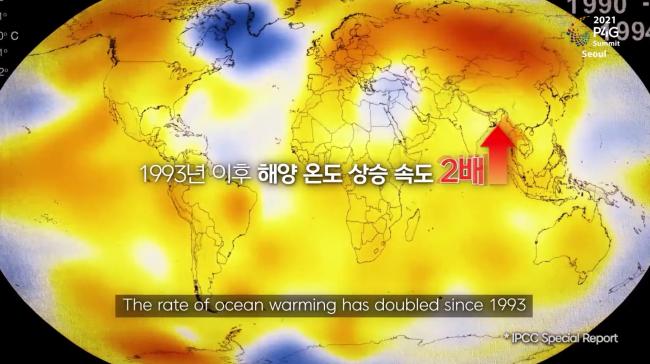Day 3 of Green Future Week focused on reducing carbon emissions from the maritime shipping sector, and tackling marine plastic litter.
In the session on shipping, discussions centered around how governments and industry will contribute toward the International Maritime Organization (IMO) commitment to reduce annual greenhouse gas emissions from maritime shipping by 50% from 2008 levels.
Moon Seong-hyeok, Minister of Oceans and Fisheries, Republic of Korea, highlighted the country’s commitments to expand the share of low-carbon or zero-carbon vessels in its shipping fleet and turn Korean ports into global hydrogen energy transport hubs. He also pledged to expand the country’s coastal wetlands, including 54,000 hectares of marine forests, to enhance carbon sequestration.
Speakers from the shipping and port industries, and from the research and development sector, noted that 90% of world trade depends on sea routes, and that for some countries, such as Indonesia, domestic shipping around its many islands is also essential. They discussed the prospects for uptake of alternative energy for shipping, including the use of biofuels, hydrogen, ammonia, or even container-sized batteries for electrified vessels, which could be loaded on and off board by barges. They noted that associated safety and handling procedures, bunkering, and related port arrangements would need to be harmonized across ports, so as to enable a level playing field and a level of predictability for shipping as it moves across the world.
The session on marine plastic litter opened with the signing of an MOU and the launch of a regional initiative, the East Asian Seas Initiative on Clean Oceans. The new Initiative is a cooperative effort by the Republic of Korea’s Ministry of Oceans and Fisheries, Partnerships in Environmental Management for the Seas of East Asia (PEMSEA), and several NGOs from the Philippines, Indonesia and Viet Nam to build capacity and demonstrate best practice in marine litter management.
Minister Moon announced the planned launch of a container deposit and refund system by 2023 that will incentivize voluntary returns of reusable containers, and encourage the use of biodegradable ones. He also mentioned an ongoing adopt-a-beach project, in partnership with private companies and organizations.
Peter Thomson, UN Secretary-General’s Special Envoy for the Ocean, Fiji, stressed that greenhouse gases are linked to ocean acidification and warming, and death of coral reefs, for example.
Leaders from governments and multilateral organizations expressed strong support to begin negotiating a global agreement on marine plastic litter when the UN Environment Assembly re-convenes in 2022. Inger Andersen, Executive Director, UN Environment Programme said the lack of a global agreement on marine plastic litter is not an excuse for inaction. She urged governments to use national policies to manage and reduce plastic pollution.
Panelists highlighted the need for circularity in plastics to ensure that they are recycled into other useful products and do not become waste. Speakers noted that technology and clean-up approaches, such as the use of ‘interceptors’ to collect plastics at river mouths, also hold promise for greatly reducing ocean plastics.
To receive continuing coverage of this event delivered to your inbox, subscribe to the ENB Update newsletter.









